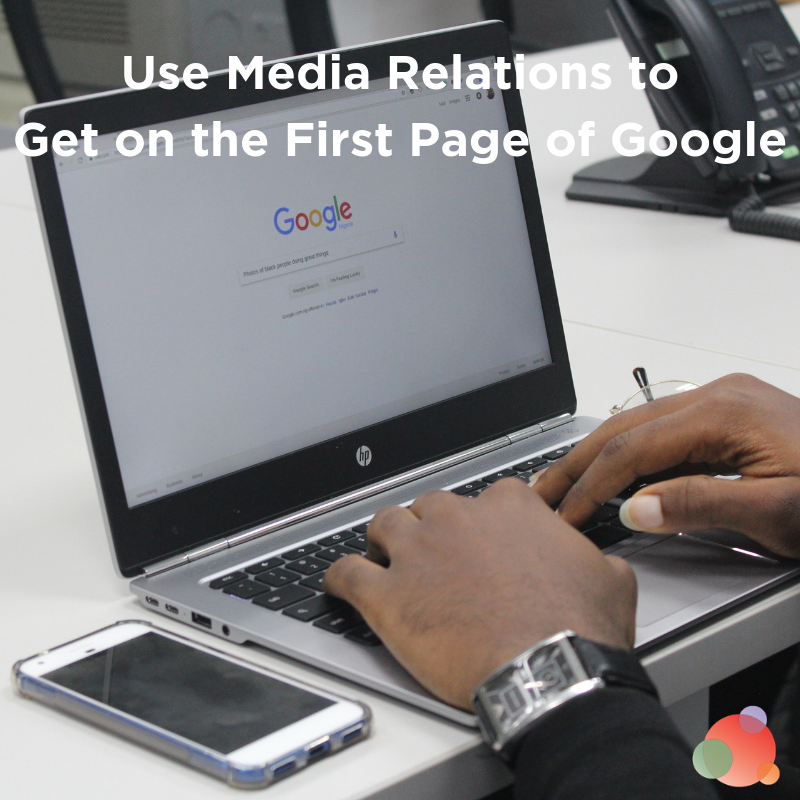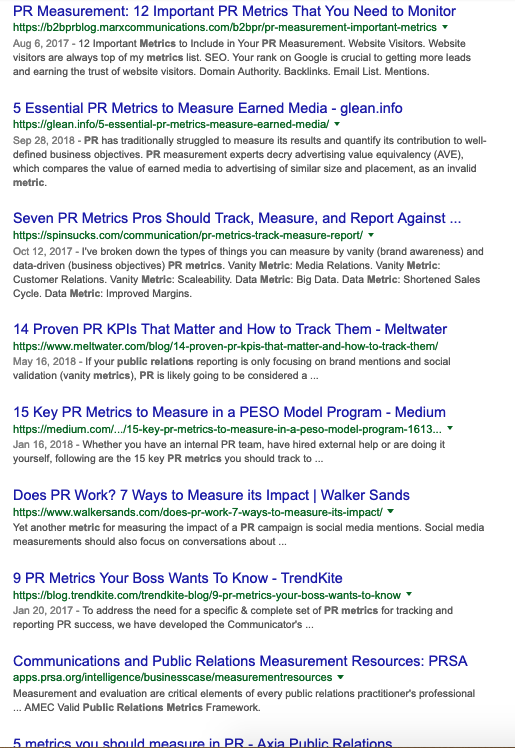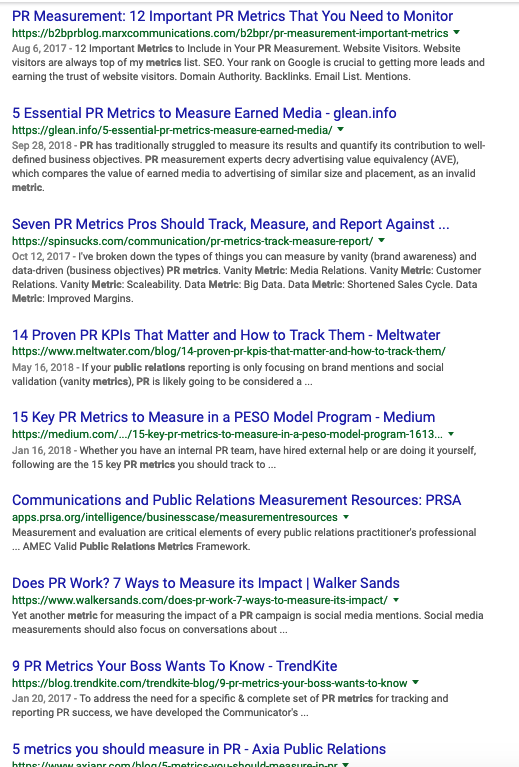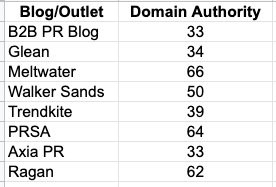 Yesterday morning, I got up, showered, put on makeup, and joined Jason Falls on Facebook Live for Go Ahead Caller.
Yesterday morning, I got up, showered, put on makeup, and joined Jason Falls on Facebook Live for Go Ahead Caller.
It’s not so much that I’m not a morning person. I get up early every morning. But I don’t have to be “on” at 7 a.m. And I certainly don’t have to be dressed and wearing makeup that early. Ever.
(I mean, my commute is six seconds, as we discussed yesterday.)
So I made a joke about how I was up at the butt crack of dawn to join him—and the hilarity ensued.
But beyond doing our stand-up comedy, we actually talked about PR things, including how important SEO is in our media relations efforts.
We talked about how communicators, in general, are afraid to ask journalists, bloggers, and influencers for a link to their website.
And that is not OK!
If you want to be on the first page of Google results, you have to earn links from high-quality websites, which most publications qualify for and are willing to do, if you’ve built a great relationship and aren’t spamming them or their readers.
And, if you want the coveted first spot, you have to, have to, have to earn some media with a link back to your website.
How it Works in Practice
Let’s take the topic “PR metrics” as an example.
If I open Google and type that into the search bar, you’ll see Spin Sucks has one spot on the first page of Google results…in the third spot (and look how old the content is—I really should update it) .
The Medium article is also mine—in the fifth spot.

But I also want to see what people who don’t know me or Spin Sucks see when they search the topic.
In that case, I do a search with the same term incognito (click on file and then on new incognito window on the Mac).
The results are pretty much the same. That’s great!

Extend Your Reach and Your Search Results
All-in-all, not a bad experiment.
Google sees we have expertise when it comes to the metrics you should consider for PR campaigns.
But what if I want the coveted number one spot?
In this case, I am going to have to create more content, but I’m not going to do it on Spin Sucks.
With the moz toolbar clicked on (I turn it off most days because it’s a distraction), I create a quick spreadsheet to see what the domain authority of my first page competitors are.
This will help me determine where I can compete and where I need to build relationships.

Half have a lower domain authority than we do and the rest are in our realm of competition.
We can probably compete with those just by creating more content here on the topic.
But if we want to actually beat them and, to be fair, we should be beating them, I just need to use some good, old-fashioned media relations.
In this case, we should pitch contributed content to Meltwater, PRSA, and Ragan.
Then, when we send the article in for publication, I link to one of our PR metrics blog posts.
We also use the term “PR metrics” when I link to a Spin Sucks blog post (like I did there).
Now it’s keyword-focused and links to something specific (not our home page) that offers additional value to their readers.
When that content publishes, we have earned the very valuable link from a higher domain authority site to show Google we are experts on the topic (which increases our search results) AND our domain authority begins to increase.
Media Relations Comes in Handy
When it comes down to it, we have six blog posts on Spin Sucks (all but two were written by me) that talk about PR metrics…and only one shows up on the first page of Google search results.
Now it’s time to use our traditional media relations skills to extend that reach and show Google we are the definitive expert on the topic.
If we do our jobs correctly, we’ll end up with 10 or so pieces of content that talk about PR metrics around the web.
And, because it’s contributed content and it’s valuable to their readers, they’ll leave our link in the content.
We once had someone ask us if we could link a response he gave us to his website—and it was to a mattress sale.
Um, no.
Just like we want everything we provide you—including the links inside our content—to be valuable, journalists, bloggers, and influencers want the same.
Your Media Relations Homework
Your homework for the day is to do this exact work.
Google one of your priority keywords and see where you fall on the first page of results (or it at all).
Then create a quick spreadsheet of the domain authority of each site on the first page—and compare it to yours.
Any site that has a higher domain authority than your own is a good target.
From there, you can create a short media list of places you need to contribute content.
Then get to work!
Don’t forget:
- Relationships come first
- Create valuable content
- Include a link with your keyword(s)
- Then achieve first page domination
And then report back.
We’re going to build on this tomorrow. For now, I’d love to know your plan so we can hold you accountable.
The comments are yours…
Photo by Benjamin Dada on Unsplash